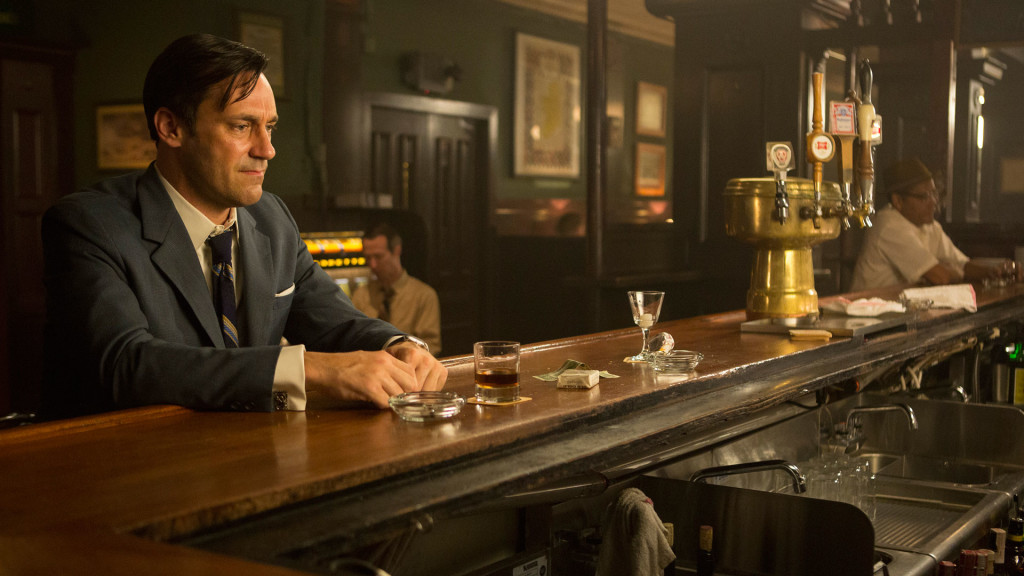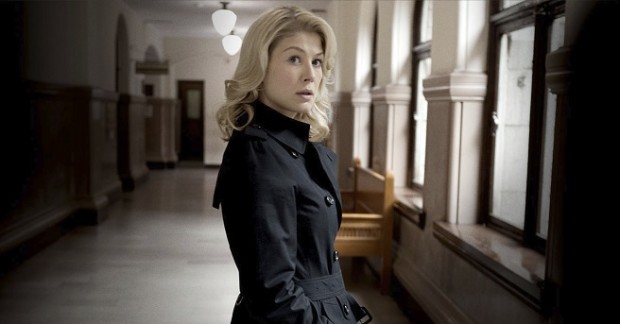Genre: Period Political Thriller
Premise: Set in one of the most volatile cities during one of its most volatile eras – Beirut in the 1980s – High Wire Act follows a bottomed-out alcoholic diplomat who’s called upon to negotiate the release of a CIA agent who used to be his best friend.
About: From the writer who brought you Michael Clayton and FOUR of the Bourne scripts (Tony Gilroy) comes this hot project, which will star Jon Hamm and Rosamund Pike.
Writer: Tony Gilroy
Details: 120 pages
High Wire Act got me thinking about the types of movies Hollywood makes these days. Cause it ain’t movies like High Wire Act. Unless you have a prestige director and an Oscar campaign ready to roll, I know execs who’d be more welcoming to the Zika Virus than an obscure period political thriller.
Remember when they used to make movies like Boiler Room? Or Rounders? You didn’t even need a concept! All you needed was a subject matter. Uhh… traders on Wall Street. Uhh… poker players! We’ll figure out the story later.
Truth be told, I’m kinda glad those movies don’t get made anymore. They sucked. I mean go back and try and watch one of them. You’re sitting there going: This is basically about a guy named Matt Damon playing poker. They didn’t even try and hide it.
Luckily, High Wire Act is more sophisticated than those scripts, plus it has the benefit of being written by someone who actually understands screenwriting.
Mason Skiles, an American diplomat in 1972 Lebanon, has managed the rare feat, along with his wife, of becoming friends with many of the locals. There’s one boy in particular, 15 year old Kamir, who Mason has personally mentored and will soon send to school in the United States.
Unfortunately, however, school will not be in session for Kamir. A group of masked men crash one of Mason’s parties and take Kamir, who it turns out is the brother of a high profile terrorist. During the scuffle, Mason’s wife is shot and killed.
Cut to 10 years later and Mason is a drunk back in the states with a bargain basement arbitration practice. Just when things can’t sink any lower, he gets a call. It’s the CIA. They want him on a plane to Beirut pronto. But they won’t tell him why.
Mason reluctantly goes, where he finds out that his former best friend and fellow diplomat, Desmond, has been taken. And the kidnappers are requiring they deal with Mason only. Hmmm… that’s interesting.
So Mason goes to meet them and wouldn’t you know it, guess who the kidnapper is? That little boy, Kamir, is all grown up and ready to make a deal. The Israelis have kidnapped Kamir’s troublemaker brother. If Mason can get him back, Kamir will deliver Desmond.
And that’s where things get REALLY complicated. Kamir’s brother is essentially Osama Bin Laden to the Israelis. There’s no WAY they’re going to give him up. Which means Mason is going to have to pull off the greatest negotiation of all time in order to save his friend. Can he do it?
This script starts with a bang and never lets go. My issue with these scripts is that the writer will get too wrapped up in the politics side of things. That stuff isn’t interesting to me. Nor is it interesting to most. What audiences care about are people. If you can set up a cast of characters who are interesting and put them in dramatic situations that are compelling, it doesn’t matter what the overarching storyline is. WE WILL CARE.
And that’s what Gilroy does. He opens with a flashback that introduces us to our happy main character, his happy wife, his happy best friend, and the happy teenage boy he mentors.
Immediately after making us fall in love with them, the terrorists arrive and kill Mason’s wife. I was devastated. And why? It’s just words on a page. But this is the power of good screenwriting. You create moments between characters, make us care about them, then take those characters away.
Even more brilliant? PERSONAL STAKES. What bad writers do in these scripts is they introduce a bunch of random people with random ranks who we don’t know, and expect us to give a shit if one of them is kidnapped.
What Gilroy does is he makes the kidnapped guy our main character’s best friend (PERSONAL STAKES). And who’s the kidnapper? The kid Mason mentored (PERSONAL STAKES). Everything here is personal, which makes the bonds and thus the plotlines stronger.
Gilroy doesn’t stop there. He utilizes what I’ve deemed the “mystery goal.” The mystery goal adds flavor to a goal, it adds a spike. When Mason is called upon 10 years later to go back to Beirut, he isn’t told why. It’s a MYSTERY. So you’re not just sending your character somewhere (their goal) but strengthening it with a mystery along the way. Of COURSE we’re going to want to keep reading. Just like Mason, we want to find out what the fuck they want him for.
Another key tip is to make your mystery goal IMPORTANT. Typically, when you lay down a mystery, you can keep that mystery going for 10-15 pages and the reader’s going to stay invested. People naturally will stick around until the mystery is solved. But the more IMPORTANT you make that mystery, the longer you can stretch out the reveal.
The way the CIA talks to Mason about this Beirut trip, they make it sound like a really big fucking deal. Like this is one of those things you can’t pass on. As a reader I’m going, “Ooh, this seems big time. I have to know what this is about.” If the same person had come to Mason and said, “I heard these people are sorta interested in talking to you. Maybe you should check it out.” Does that sound important enough to make you care? Of course not.
Lots of great scenes here too. Bad writers take common scenes and play them out the way they alway play out. Good writers take common scenes and they TURN THEM in a way where they play out unexpectedly. So when Mason goes to meet with the kidnappers for the first time, there are two men in masks he’s talking to. The main one, the older guy, is screaming and yelling at Mason, telling him that Mason’s going to play by their rules. After about 3 minutes of this, the other masked man calmly raises his gun and shoots the man in the back of the head for being difficult. He then takes over the negotiation.
WHAT THE FUCK?? Wasn’t expecting that.
After all this, you’re probably expecting me to give this an impressive. I was actually going higher than that at the midpoint. This was going Top 25. But then the script started doing exactly what I said you shouldn’t do at the beginning. It started focusing on the politics, the web of lies, the world of the impersonal as opposed to the personal.
One of the issues here was that Beirut had a dozen warring factions inside of it in the 80s. So there were SO MANY bad guys. So many different clubs who were part of the problem. Add onto that people double-crossing each other and after awhile, you couldn’t keep track of it anymore.
It’s the double-edged sword with these types of scripts. As they move towards their climax, they have to get bigger. But the bigger they get, the harder it is to keep track of what’s going on. So you have to either deftly calibrate how much the audience can take, or be an expert at keeping loads of information clear and easy to digest.
I eventually got lost in all the madness. And that’s too bad, cause this script had a hold on me for a big portion of its page count.
[ ] What the hell did I just read?
[ ] wasn’t for me
[x] worth the read
[ ] impressive
[ ] genius
What I learned: One of the oldest writing tricks in the book. Place your hero where he least wants to be. The last place Mason wants to be after his wife was murdered there is Beirut. So where is he sent to? Beirut. You do that and I’m telling you, most of your movie will write itself.
What I learned 2: You’re never going to write the perfect screenplay. The goal is simply to do more good than bad. If you can achieve that, you’ll have a script worth reading.



